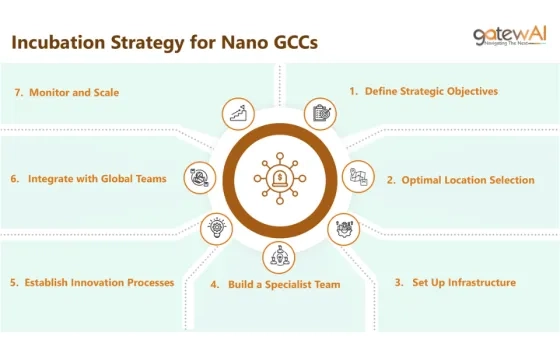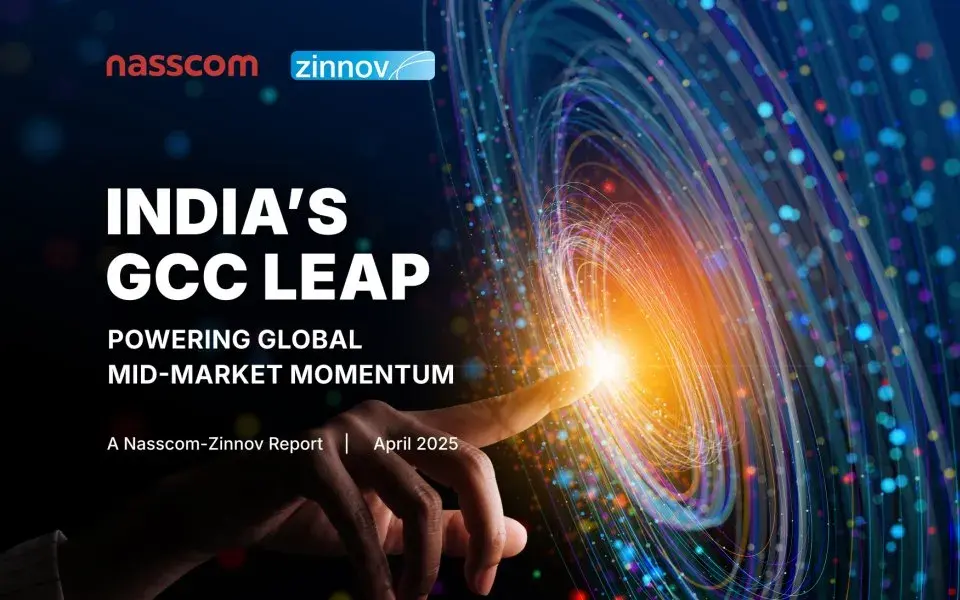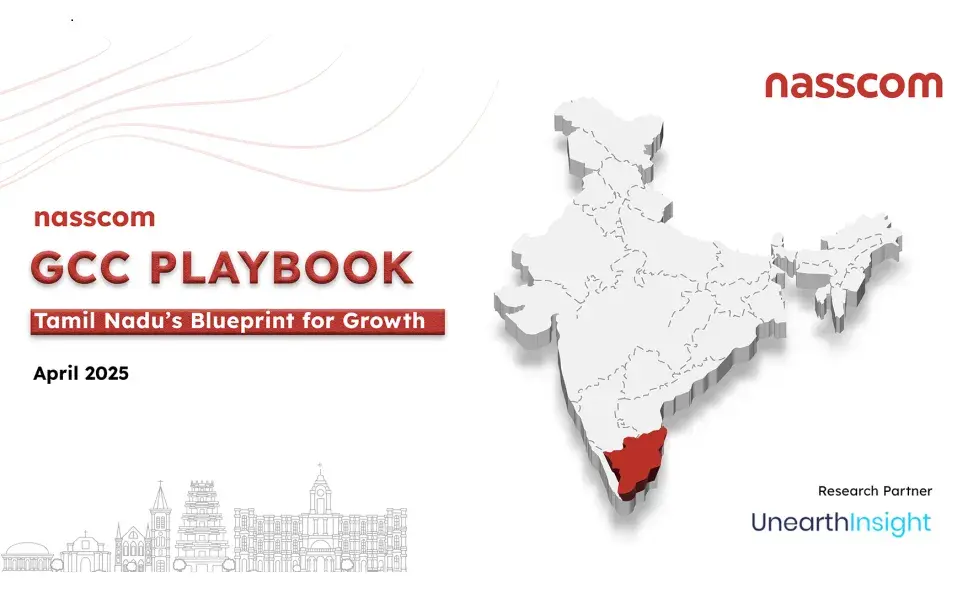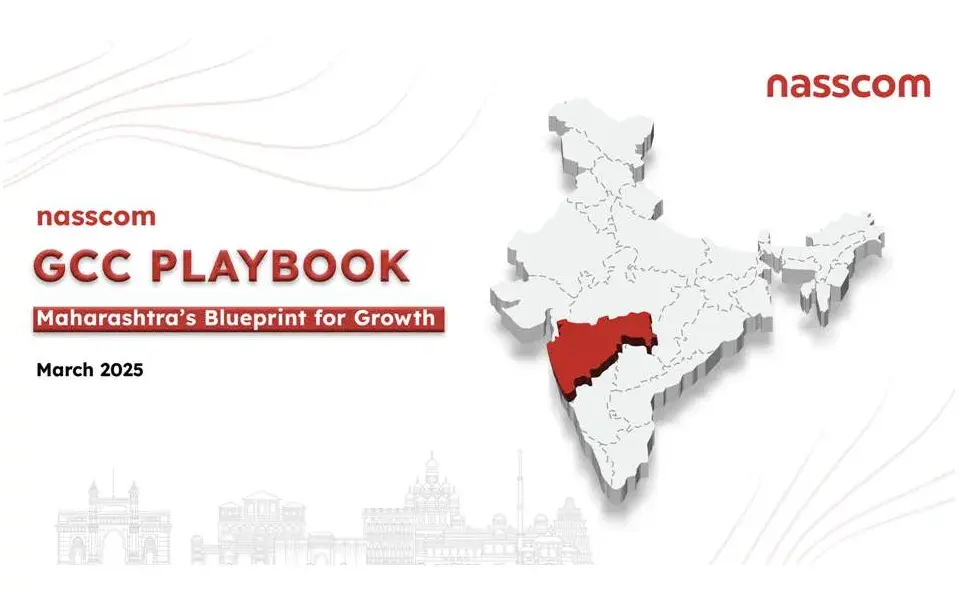"As a country, we are sitting on a gold mine, but we are digging in with a spoon" is my favourite quote from the nasscom GCC conclave…
It was an honor for me and colleagues to represent Swiss Re Global Business Solutions India at the recently organised 13th edition of nasscom GCC Conclave (2023), in Bengaluru. which was held on June 1-2, 2023, at Sheraton Grand, Bengaluru.
The conclave focused on continuous digital transformation via collaborative innovation and discussed the role of India in the hyperconnected world. There were four key building blocks of the conclave: Building a Seamless Enterprise; Technology at the Edge; Reimagining 3Ws (Work, Workforce, and Workplace) for an Impactful Future, and What's Next?
Sharing our perspective and take aways of the nasscom GCC Conclave 2023 in the below pillars –
- Global ownership and end-to-end accountability
- Adoption of Emerging technologies to drive impactful innovation
- Risk and Governance in Digital Transformation
- People and Talent Development in GCCs
Global ownership and end-to-end accountability. While there were several themes which emerged, one theme which really stood out for me was that never has there been a greater need for global capability centres (GCCs) in India than now to really showcase our credentials in owning the processes globally and taking end-to-end accountability. It was really heartening to see so many leaders showcasing examples of how they are doing it in their respective organizations and therefore enhancing their credibility.
However, there are a few firms still out there who have not yet started this journey or maybe planning on this journey. The burning questions for them are:
- What do we do to get these global roles?
- How do we not only get a seat but also get our voices heard at the table?
- How do we become more globally relevant?
Based on what I heard at the nasscom GCC Conclave, here are the top 10 recommendations to make global roles a reality in GCCs in India.
-
- Promote culture of risk taking. Failures are fine as long as they are adding to the overall learning process. Take risks as a habit, not as an exception. You cannot take on global initiatives if you are scared of taking risks.
- Focus on impact and outcomes, not efforts. Some leaders are learning this the hard way. They might be technically the strongest leaders, but if they lack commercial acumen and cannot prioritize real outcomes, they will be left behind in the race.
- When hiring the right talent, focus on leadership talent, not delivery talent.
-
- Be ambitious, don't just think big, think 'grand'. My favourite quote in nasscom GCC Conclave was "As a country, we are sitting on a gold mine, but we are digging in with a spoon".
- Solid understanding of the business - if as a leader, you understand the business, you understand what technology can do for you, you understand the customer needs, you understand the challenges and how they can be solved, you can really build a world class business.
- Empower leaders in your organization - this is the only way you can speed up ownership and accountability.
- Focus on increasing the breadth of your GCC portfolio.
- Build product leadership and ownership skills in your firm
- Don't go alone. What is your ability to find the right partnerships within the ecosystem?
- Use technology to your advantage. The GCCs are most capable of innovation, we should use tech to reduce our work and focus more on customer facing or more critical activities.
Adoption of Emerging technologies to drive impactful innovation
The success stories and emerging trends showcased in the GCC Conclave outlined the best practices for current market situation and business context and demonstrated how some of the GCCs in India are driving impactful change for their global organizations. A key enabler for this change is Technology, which is helping GCCs to generate enhanced value for the overall organization (in terms of new revenue streams, cost optimization, operational efficiency, etc.) by means of effective digital transformation.
Organizations face rapid technological and societal changes, requiring a new mindset and approach to adapt and improvise. By focusing on essential skills, ecosystem development, inspiring leadership, and leveraging the "new world" of technology, organizations can successfully transform for the future and GCCs can take a leading role in driving this transformation. ChatGPT and other generative media are revolutionizing industries at lightning speed. Robotics taking over jobs, and algorithms making decisions beyond human capabilities. Healthcare tech is booming with telemedicine, wearables, brain implants, bioprinters, and more!
With the paradigm shift in the pace of innovation and disruption, businesses need to look at a total reinvention at an industry level enabled by technology and data at the core. This gives a huge opportunity for global organizations to create moats for future growth. GCCs play a critical role in this journey of their global enterprises, a deliberate strategy that uses technology and new ways of working to continuously reinvent all aspects of the business.
Emerging technologies such as Generative Artificial Intelligence (AI), Machine Learning (ML), etc. can help GCCs automate repetitive tasks, improve process efficiency, reduce costs and mitigate/prevent risks through innovative solutions. GCCs are spearheading such digital transformations for their global organizations, which are further enhancing the customer experience and simplifying the end-to-end customer journey.
Furthermore, GCCs are driving business impact across their enterprises by leveraging digital data. In 2022, enterprises generated around 97 zettabytes of data (1 zettabyte is equal to approximately 1 billion terabytes – equivalent to the number of observable stars in the universe), and if they are able to leverage even a small fraction of this data to improve business performance, it would result in a significant impact on output.
From improved security and on-demand scalability to reduced cost and time-to-market, the cloud offers immense benefits to businesses. Several organizations are unlocking new opportunities for growth and innovation by adopting a cloud-first strategy and leveraging cloud-enabled operations to move toward a greener, more sustainable world.
Risk and Governance in Digital transformation
Digital transformation simply means "the integration of digital technology into all areas of a business, resulting in major changes in how organisations operate and deliver value". As we get prepared to the future and upgrade ourselves and undergo digital transformation journey; cyber security, prevention of fraud and technology risks has become a critical concern. It’s also a journey that’s unique to every organization, which is why a comprehensive and customised governance and risk mitigating measures are essential.
There are several measures that can be taken to improve and be prepared for the challenges that arise in digital transformation journey. There were multiple sessions and fireside chats that touched on this topic. Below are our key takeaways from the 2-day conclave –
- The evolution of digital transformation has steered the focus on the way businesses operate, deliver value to customers, and interact with stakeholders. At the same time, the rapid development of digital technology has greatly changed the perspective of security and increased the risk of cyber threats. Cybersecurity is a critical aspect of any digital transformation project as it protects a company's digital assets, intellectual property, and customer data.
- The major risks that could affect businesses, economies, and societies globally in the upcoming years, such as geopolitics, climate change, cybersecurity, financial stability, technological disruptions, or other factors, and the corresponding strategies and actions that organizations and individuals can employ to mitigate these risks and prepare for potential scenarios.
Overall, we gained an expert perspective on how digital transformation is affecting the GCC industry, insights on the opportunities and challenges arising from emerging technologies, disruptive business models, and other trends shaping the global business landscape.
People and Talent Development in GCCs
One team – One the recurring themes for across the team to collaborate with the onshore teams. In this information age, the world has become smaller, and people have come closer. The team should work as extension of the existing team. Some the speakers suggested that we should avoid using words like captive units, centre of excellence or even GCC. For some organizations, India offices are delivering up to 50% of their Global work and they are working towards integrating and better collaboration.
People Focus/ Talent development – The common question that was asked to the panellists was what next for the India GCCs. And people have unanimously agreed that we will have to move up the value chain and take part in decision making. And for moving up the value chain upskilling of the people is of paramount importance. There must be a continuous focus on talent development through training and providing better exposure. Also, the employees must be able to vision impact at a macro level to add better value to the company. Companies like Mercedes have invested a lot on talent development and 60 to 70% of their R&D work is happening out their Indian offices.
Upskilling to avoid AI disruption – Disruption in jobs due to AI is a big concern across the world. Some the speaker like CEO of Trendforce talked about advanced robotics and implanting chips in humans is something that may happen in future and cause a lot of disruption and companies will have to be prepared for the same. However, in most of the sessions the panellists were of the view that the current breeds of AI's are generative in nature and not adaptive AI. So only mechanical and repetitive work might be executed AI, but it is not capable of decision making. Also, a human will be required to operate and monitor the AI work.
Diversity – Another focus area for the companies is to focus on diversity in the company. Encouraging diversity helps increase productivity, increased retention, and overall business success. This encourages diversity in thinking which helps in problem solving and better decision making. It is also very important for Gen Z and Gen Alpha who are going to be future business owners as well as consumers. Hence, most panellists agreed to formulate policies to encourage inclusiveness.


















